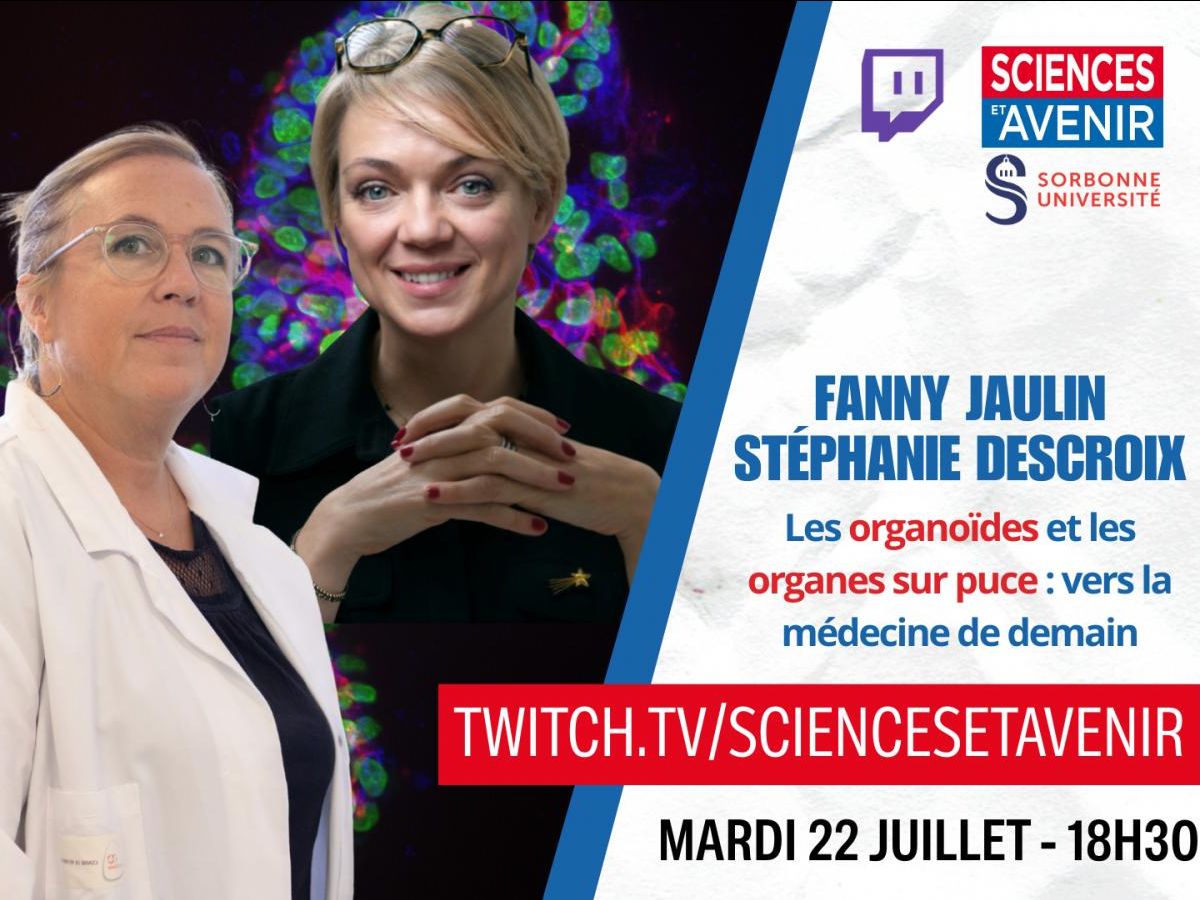Tuesday, July 22, 2025 at 6:30 p.m., Science and Future will meet you on his Twitch channel and on Youtube Live for a live broadcast on organoids and organs-on-chips. Two experts on the subject will be gathered around the table: Stéphanie Descroix, CNRS research director at the Curie Institute, and Fanny Jaulin, Inserm research director at the Gustave Roussy Institute. This is an opportunity to review the basics of these technologies and understand the issues surrounding them!
Revolutionary for medical biology, organoids are 3D structures formed from cells designed to replicate the functioning of an organ. But can we really call them mini-organs? Scientists will answer this question on Tuesday, July 22.
See also Twitch Replay: Epigenetics, a discipline as vast as it is mysterious
Your questions are welcome!
Our live broadcasts are designed to answer your questions! For one hour, enjoy a unique setting to ask your questions in the chat; this live broadcast is designed to allow you to interact with the researchers. Here are some examples that the scientists will answer:
-
What do organoids look like?
-
How are they grown in the laboratory?
-
What are organs-on-chips and what are they used for?
-
Can we treat diseases with these technologies?
-
Can we recreate a complete organ in the laboratory?
See also Twitch Replay: The Machinery Behind Our Cells, with Nicolas Minc
Live with two experts in organoids, organs-on-chips and cancers
Stéphanie Descroix and her team are building organs (including tumors) on chips, tools that allow for more precise study of the environment, behavior, and reactions of cancer cells. The "chip" is a glass, silicone, or plastic support measuring a few square centimeters. On it, cells are cultured in three dimensions, as in the living world, to recreate a kind of "mini-organ." On the support, a set of etched or molded microchannels, connected to each other, allow for control of the biochemical environment. This work combines biology, physics, chemistry, and engineering.
Fanny Jaulin is head of the "Cell Biology of Digestive Cancers" team at the Gustave Roussy Institute. She is looking for ways to better understand and prevent metastases, particularly by studying organoids reproducing patients' colorectal tumors. She is also the founder of the start-up Orakl, a technology at the intersection of computer science and biology, which aims to anticipate the effectiveness of a drug candidate in the treatment of cancers. The company collects tumor avatars (organoids), tests molecules on them with the aim of finding a treatment, and compiles the results in a database.
Our old live broadcasts are available for replay
Find replays of our previous Twitch live broadcasts online:
-
Nuclear fusion, where are we now? with Julien Hillairet and Sébastien Le Pape
-
Seabed, what are the challenges? with Olivier Adam and François Lallier,
-
Video games and mental health: what does science really say? with Michaël Stora
-
Chlordecone: a look back at a public health and environmental issue with Marie Baléo
-
What is a species? with Diane Dabir-Moghaddam and Pierre Kerner
-
The History of the Universe and Dark Energy with Pauline Zarrouk and Sébastien Carassou


